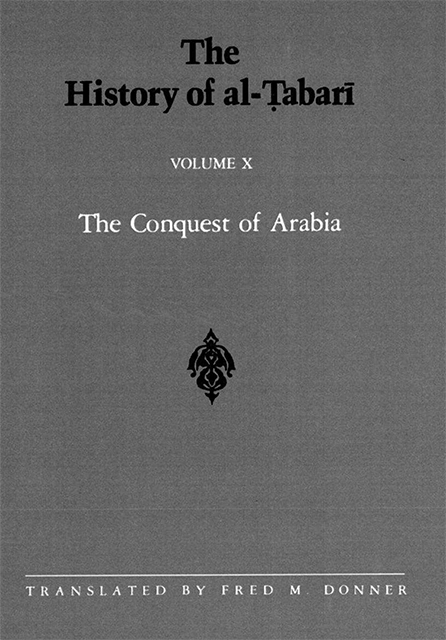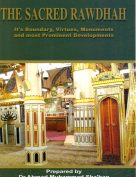
- Muhammad ibn Jarir al-Tabari
- State University of New York Press
- Franz Rosenthal
- 1989
- 243
- 9572
- 6035
- 3980
The History of al-Tabari Volume 10
The History of al-Tabari :Tarikh al-Rusul wa’l muluk ‘Annals of the Apostles and Kings’ ,by Abu Ja’far Muhammad b Jarir al-Tabri (839-923). It is by common consent the most important universal history produced in the world of Islam.
The Conquest of Arabia
Volume X of al-Tabari’s massive chronicle is devoted to two main subjects. The first is the selection of Abu Bakr as the first caliph or successor to the Prophet Muh’ammad following the Prophet’s death in 632 C.E. This section of the History reveals some of the inner divisions that existed within the early Muslim community, and sheds light on the interests and motivations of various parties in the debates that led up to Abu Bakr’s acclamation as caliph.
The second main subject of Volume X is the riddah or “apostasy”–actually a series of rebellions against Muslim domination by various tribes in Arabia that wished to break their ties with Medina following the Prophet’s death.
The History offers one of the more extensive collections of accounts about this early sequence of events to be found in the Arabic historical literature.
It provides richly detailed information on the rebellions themselves and on the efforts made by Abu Bakr and his Muslim supporters to quell them. It also tells us much about relationships among the tribes of Arabia, local topography, military practice, and the key personnel, organization, and structure of the early Islamic state.
The successful suppression of the riddah marked the transformation of the Muslim state from a small faith community of importance only in West Arabia to a much more powerful political entity, embracing all of the Arabian peninsula and poised to unleash a wave of conquests that would shortly engulf the entire Near East and North Africa. The riddah era is, thus, crucial to understanding the eventual appearance of Islam as a major actor on the stage of world history.
Source: kalamullah



















 Afar
Afar Afrikaans
Afrikaans Akan
Akan Albanian
Albanian Amharic
Amharic Armenian
Armenian Assamese
Assamese Avari
Avari Azerbaijani
Azerbaijani Basaa
Basaa Bengali
Bengali Bosnian
Bosnian Brahui
Brahui Bulgarian
Bulgarian Burmese
Burmese Catalan
Catalan Chami
Chami Chechen
Chechen Chichewa
Chichewa Circassian
Circassian Comorian
Comorian Czech
Czech Danish
Danish Dutch
Dutch Estonian
Estonian Finnish
Finnish Fulani
Fulani Georgian
Georgian Greek
Greek Gujarati
Gujarati Hausa
Hausa Hebrew
Hebrew Hungarian
Hungarian Icelandic
Icelandic Indonesian
Indonesian Ingush
Ingush Japanese
Japanese Jawla
Jawla Kannada
Kannada Kashmiri
Kashmiri Katlaniyah
Katlaniyah Kazakh
Kazakh Khmer
Khmer Kinyarwanda
Kinyarwanda Korean
Korean Kurdish
Kurdish Kyrgyz
Kyrgyz Latvian
Latvian Luganda
Luganda Macedonian
Macedonian Malagasy
Malagasy Malay
Malay Maldivian
Maldivian Maranao
Maranao Mongolian
Mongolian N'ko
N'ko Nepali
Nepali Norwegian
Norwegian Oromo
Oromo Pashto
Pashto Persian
Persian Polish
Polish Portuguese
Portuguese Romani - gypsy
Romani - gypsy Romanian
Romanian Russian
Russian Serbian
Serbian Sindhi
Sindhi Sinhalese
Sinhalese Slovak
Slovak Slovenian
Slovenian Somali
Somali Swahili
Swahili Swedish
Swedish Tagalog
Tagalog Tajik
Tajik Tamazight
Tamazight Tashamiya
Tashamiya Tatar
Tatar Thai
Thai Tigrinya
Tigrinya Turkish
Turkish Turkmen
Turkmen Ukrainian
Ukrainian Urdu
Urdu Uyghur
Uyghur Uzbek
Uzbek Vietnamese
Vietnamese Yoruba
Yoruba Zulu
Zulu